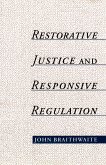This book examines the current state of both the theory and practice of prison privatization in the United States in the 21st century, providing a balanced compendium of research that allows readers to draw their own conclusions about this controversial subject.
This three-volume set brings together noted scholars and experts in the field to provide a comprehensive treatment of the subject of privatized prisons in the United States. It is a definitive work on the topic that synthesizes current thought on both the theory and practice of prison privatization.
Volume I provides a broad-brush overview of private prisons that discusses the history of prison privatization and examines the expansion of the private prison industry and the growth of inmate populations in the United States. Volume II focuses on the corrections industry itself, providing essays that explore the business models, profit motivations, economic factors, and operations of the corporations that offer corrections services, while Volume III explores the political and social environment of prison privatization. Academics, practitioners, policy makers, and advocates for and against private prisons will find this work useful and enlightening, while general readers can use the unbiased information to draw their own conclusions in respect to the merits of prison privatization.
This three-volume set brings together noted scholars and experts in the field to provide a comprehensive treatment of the subject of privatized prisons in the United States. It is a definitive work on the topic that synthesizes current thought on both the theory and practice of prison privatization.
Volume I provides a broad-brush overview of private prisons that discusses the history of prison privatization and examines the expansion of the private prison industry and the growth of inmate populations in the United States. Volume II focuses on the corrections industry itself, providing essays that explore the business models, profit motivations, economic factors, and operations of the corporations that offer corrections services, while Volume III explores the political and social environment of prison privatization. Academics, practitioners, policy makers, and advocates for and against private prisons will find this work useful and enlightening, while general readers can use the unbiased information to draw their own conclusions in respect to the merits of prison privatization.









